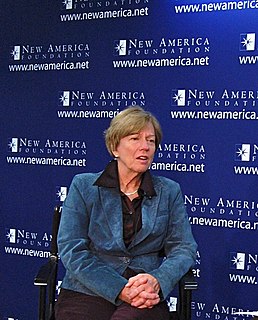A Quote by Jacques Diouf
In terms of the short-term objective [halving world hunger by 2015], the position I have always taken is that we don't need genetically modified organisms.
Related Quotes
The huge arrogance of the companies developing GMO crops and their determination to destroy the line of accountability which links the developer to the product is breath-taking. When something goes wrong, as it inevitably will, there will be a great benefit to those who have taken a stance against genetically modified organisms.
I would avoid any product that contains genetically modified (GMO) corn, because there are still questions regarding the long-term health effects of genetically altered foods on the human body have not been thoroughly tested. Sugars are also sneaked into tons of different foods, especially foods marketed to kids. Again, study the labels carefully before buying.
I'm against the theory of the multinational corporations who say if you are
against hunger you must be for GMO. That's wrong, there is plenty of
natural, normal good food in the world to nourish the double of humanity.
There is absolutely no justification to produce genetically modified food
except the profit motive and the domination of the multinational
corporations.
Angela Merkel has been focused on the right things. She has focused on the interests of her citizens - and not just in a narrow, short-term way, but in a very thoughtful - Let's make the world a better place for future generations as well - kind of way. Whether it's about climate or migration, she's not afraid to look at the longer-term trendlines and say, OK, we need position ourselves here, even if it doesn't seem obvious - this is the direction we need to go in. People respect that in Merkel, that a politician has a vision for the long term.
As we move forward, you cannot resolve the potential food crisis or shortages without science being part of the solution. Science has to be part of the solution but African governments - and these are decisions for governments, whether they embrace or do not embrace genetically modified food - and for the moment, most African companies do not accept genetically modified seeds.
Democrats pride themselves on their commitment to science. Citing climate change, they contend that they are the party of truth, while Republicans are 'denialists.' But with respect to genetically modified organisms, many Democrats seem indifferent to science, and to be practicing a denialism of their own - perhaps more so than Republicans.

























